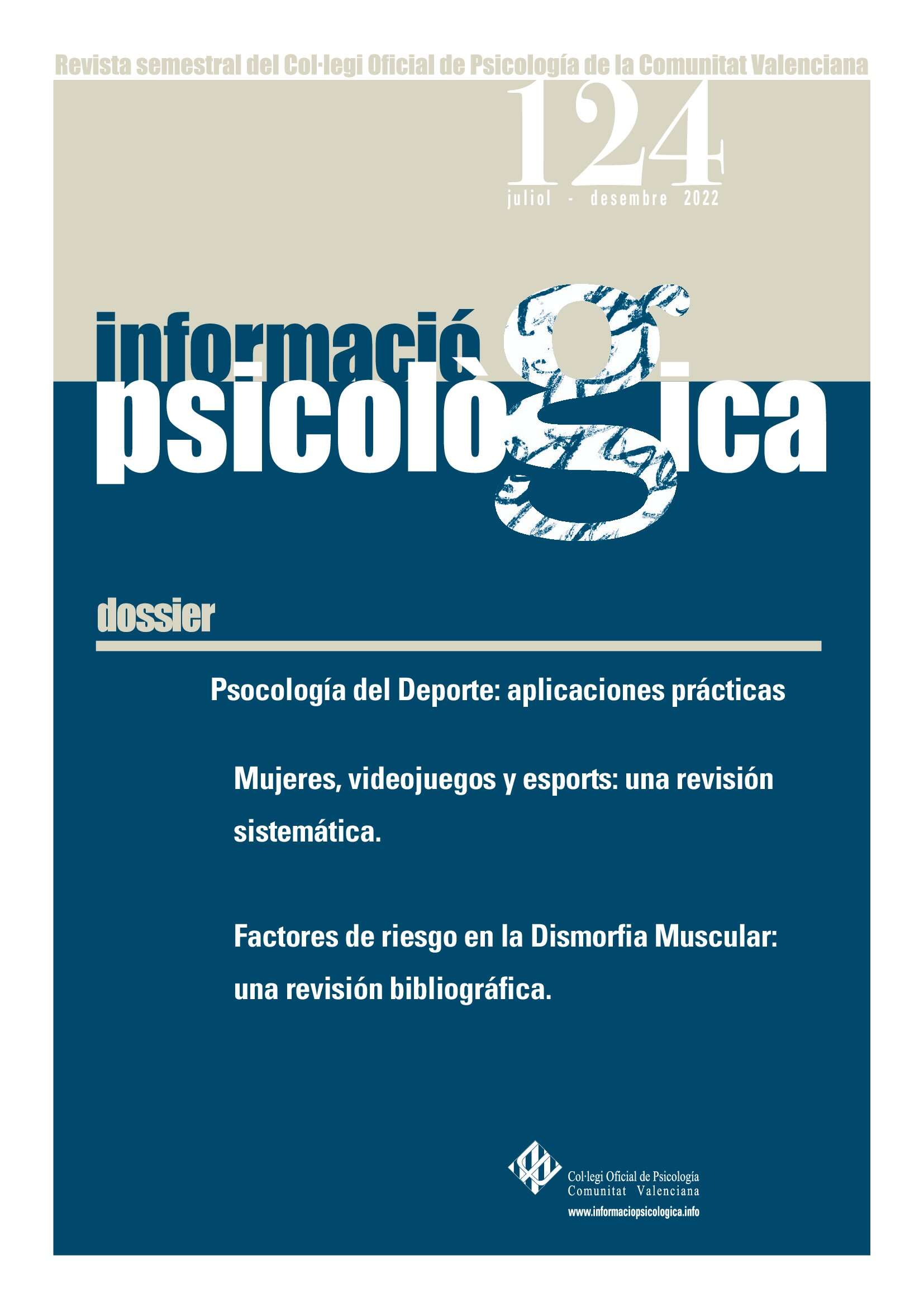Online Behavioral Intervention for Glycemic Control in Type 2 Diabetes Mellitus: A Case Study.
DOI:
https://doi.org/10.14635/ipsic.1930Keywords:
Behavior Modification Techniques; Treatment Adherence; Case Study; Applied Behavior Analysis; Diabetes Mellitus, Online Treatment.Abstract
The aim of this study was to evaluate the efficacy of a behavioral treatment directed to non-pharmacological adherence behaviors and glycemic control in a patient with T2DM. This is a case study of a male patient, 65 years old, which reported difficulties to modify his diet and lack of disease control characterized for glycemic values between 200 and 300 mg/dl. The patient was treated with an 11-sessions behavioral intervention which was divided into three phases (evaluation, treatment, and follow-up). Daily capillary glycemic measures were taken (fasting and post-dinner) adding a weekly meal consumption report. Visual analyses were practiced, and size effect was calculated for each phase. complemented with the size effect calculation. We found a glycemic reduction (both fasting and post-dinner) through the intervention and in two months follow-up, with a significant, middle size effect. Besides, the patient reported reduction in scrap-food and increase in fruits and vegetables ingestion. The results showed the efficacy of an intervention promoting non-pharmacological adherence behaviors and blood glucose reduction.
The efficacy of the intervention may be due to the generation of health-related thinking patterns (consequences of behavior and perceived vulnerability) facilitated by an educational process. Besides, the self-control strategies contributed to the execution and maintenance of the goals.
Downloads
References
American Diabetes Association. (2021). Classification and Diagnosis of Diabetes: Standars of Medical Care in Diabetes-2021. Diabetes Care, 44(1), S15–S33.
Basto-Abreu, A., Barrientos-Gutiérrez, T., Rojas-Martínez, R., Aguilar-Salinas, C. A., López-Olmedo, N., De la Cruz-Góngora, V., Rivera-Dommarco, J., Shamah-Levy, T., Romero-Martínez, M., Barquera, S., López-Ridaura, R., Hernández-Ávila, M., y Villalpando, S. (2020). Prevalencia de diabetes y descontrol glucemico en Mexico: Resultados de la Ensanut 2016. Salud Publica de Mexico, 62(1), 50–59. https://doi.org/10.21149/10752
Descalzo, C., y Aldrete, J. (2017). Manual para Pacientes con Diabetes Tipo 2 (McGraw Hill Education (ed.)). http://fmdiabetes.org/wp-content/uploads/2017/04/Libreta-de-Viaje.-Manual-para-pacientes-EN-Baja.pdf
Dirección de Promoción de La Salud y Control de Enfermedades No Transmisibles. (2017). Manual para el cuidado de personas con enfermedades crónicas no transmisibles: manejo integral en el primer nivel de atención. https://iris.paho.org/bitstream/handle/10665.2/34520/9789503802397_spa.pdf?sequence=1&isAllowed=y
Instituto Nacional de Estadistica y Geografia. (2021). Módulo de Práctica Deportiva y Ejercicio Físico (MOPRADEF). Inegi, 1–17. https://www.inegi.org.mx/programas/mopradef/
Kebede, M. M., Liedtke, T. P., Möllers, T., y Pischke, C. R. (2017). Characterizing active ingredients of ehealth interventions targeting persons with poorly controlled type 2 diabetes mellitus using the behavior change
techniques taxonomy: Scoping review. Journal of Medical Internet Research, 19(10). https://doi.org/10.2196/JMIR.7135
Kontis, V., Mathers, C. D., Rehm, J., Stevens, G. A., Shield, K. D., Bonita, R., Riley, L. M., Poznyak, V., Beaglehole, R., y Ezzati, M. (2014). Contribution of six risk factors to achieving the 25×25 non-communicable disease mortality reduction target: A modelling study. The Lancet, 384(9941), 427–437. https://doi.org/10.1016/S0140-6736(14)60616-4
Lim, S. S., Vos, T., Flaxman, A. D., Danaei, G., Shibuya, K., Adair-Rohani, H., Amann, M., Anderson, H. R., Andrews, K. G., Aryee, M., Atkinson, C., Bacchus, L. J., Bahalim, A. N., Balakrishnan, K., Balmes, J., Barker-Collo, S., Baxter, A., Bell, M. L., Blore, J. D., … Ezzati, M. (2012). A comparative risk assessment of burden of disease and injury attributable to 67 risk factors and risk factor clusters in 21 regions, 1990-2010: A systematic analysis for the Global Burden of Disease Study 2010. The Lancet, 380(9859), 2224–2260. https://doi.org/10.1016/S0140-6736(12)61766-8
Michie, S., Atkins, L., y West, R. (2014). The Behaviour Change Wheel: A Guide to Designing Interventions. In The Behavior Change Wheel: Book Launch Event.
Michie, S., Wood, C. E., Johnston, M., Abraham, C., Francis, J. J., y Hardeman, W. (2015). Behaviour change techniques: The development and evaluation of a taxonomic method for reporting and describing behaviour change interventions (a suite of five studies involving consensus methods, randomised controlled trials and analysis of qualitative da. Health Technology Assessment, 19(99), 1–187. https://doi.org/10.3310/hta19990
Nezu, A., Nezu, C., y Lombardo, E. (2006). Formulación de casos y diseño de tratamiento Cognitivo-Conductuales. Un enfoque basado en problemas (Manual Moderno (ed.)).
Secretaría de Salud. (2020). Panorama epidemiológico de las enfermedades no transmisibles en México, 2019. http://library1.nida.ac.th/termpaper6/sd/2554/19755.pdf
Shamah, L. T., Cuevas, N. L., Romero, M. M., Gaona, P. E. B., Gómez, A. L. M., Mendoza, A. L., Méndez, G. H. I., y Rivera, D. J. (2020). Encuesta Nacional de Salud y Nutrición 2018-19. Resultados Nacionales. In Instituto Nacional de Salud Pública. https://ensanut.insp.mx/encuestas/ensanut2018/informes.php
Vornanen, M., Konttinen, H., Peltonen, M., y Haukkala, A. (2021). Diabetes and Cardiovascular Disease Risk Perception and Risk Indicators: a 5-Year Follow-up. International Journal of Behavioral Medicine, 28(3), 337–348. https://doi.org/10.1007/s12529-020-09924-2
World Health Organization. (2020). World health statistics 2020: monitoring health for the SDGs, sustainable development goals (Issue September). http://repositorio.unan.edu.ni/2986/1/5624.pdf
Yang, X., Li, Z., y Sun, J. (2020). Effects of Cognitive Behavioral Therapy–Based Intervention on Improving Glycaemic, Psychological, and Physiological Outcomes in Adult Patients With Diabetes Mellitus: A Meta-Analysis of Randomized Controlled Trials. Frontiers in Psychiatry, 11(July), 1–18. https://doi.org/10.3389/fpsyt.2020.00711
Downloads
Published
How to Cite
Issue
Section
License
Nota de Copyright-Los autores que publican en esta revista están de acuerdo con los siguientes términos:
Los autores conservan los derechos de autor y garantizan a la revista el derecho de ser la primera publicación del trabajo al igual que licenciado bajo una Creative Commons Attribution License que permite a otros compartir el trabajo con un reconocimiento de la autoría del trabajo y la publicación inicial en esta revista.
Los autores pueden establecer por separado acuerdos adicionales para la distribución no exclusiva de la versión de la obra publicada en la revista (por ejemplo, situarlo en un repositorio institucional o publicarlo en un libro), con un reconocimiento de su publicación inicial en esta revista.
Se permite y se anima a los autores a difundir sus trabajos electrónicamente (por ejemplo, en repositorios institucionales o en su propio sitio web) antes y durante el proceso de envío, ya que puede dar lugar a intercambios productivos, así como a una citación más temprana y mayor de los trabajos publicados







